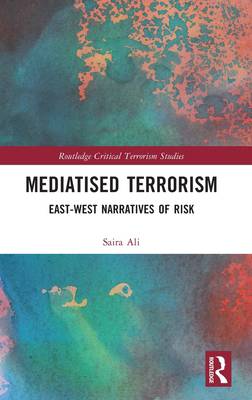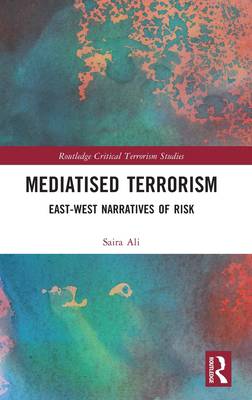
- Afhalen na 1 uur in een winkel met voorraad
- Gratis thuislevering in België vanaf € 30
- Ruim aanbod met 7 miljoen producten
- Afhalen na 1 uur in een winkel met voorraad
- Gratis thuislevering in België vanaf € 30
- Ruim aanbod met 7 miljoen producten
Omschrijving
This book offers an East-West comparative analysis of mediatised terrorism.
This is the first country-specific analysis of the mediatisation of terrorism, with Pakistan and Australia representing the two worlds, respectively. Caught up in the '9/11 effect', Australia is known for its anti-terror 'hyper-legislation', despite the implausible nature of the threat. In contrast, Pakistan is plagued by terrorism, yet the military establishment favours a duplicitous policy of fighting militant groups selectively. To understand how the two diverse cultural sites, with their very different experiences of terrorism, make sense of this unpredictable threat, the book uses Beck's World Risk Society theory as a conceptual framework to examine the production and construction of news narratives around the risk of terrorism in both countries through textual analysis of local news stories and in-depth interviews with Australian and Pakistani journalists. Narratives about 'global terrorism' are mostly 'Western', with fear of its impact on 'Western' democracy and civilisation. This book aims to fill the gap and present a nuanced understanding of global terrorism by examining the characteristics of the phenomenon in a Western as well as an Eastern location and the ways in which the risk of terrorism is being played out in the two worlds.
This book will be of much interest to students of critical terrorism studies, media studies, Asia-Pacific politics, and International Relations.
Specificaties
Betrokkenen
- Auteur(s):
- Uitgeverij:
Inhoud
- Aantal bladzijden:
- 280
- Taal:
- Engels
- Reeks:
Eigenschappen
- Productcode (EAN):
- 9781032257273
- Verschijningsdatum:
- 21/10/2022
- Uitvoering:
- Hardcover
- Formaat:
- Genaaid
- Afmetingen:
- 156 mm x 234 mm
- Gewicht:
- 585 g

Alleen bij Standaard Boekhandel
Beoordelingen
We publiceren alleen reviews die voldoen aan de voorwaarden voor reviews. Bekijk onze voorwaarden voor reviews.











